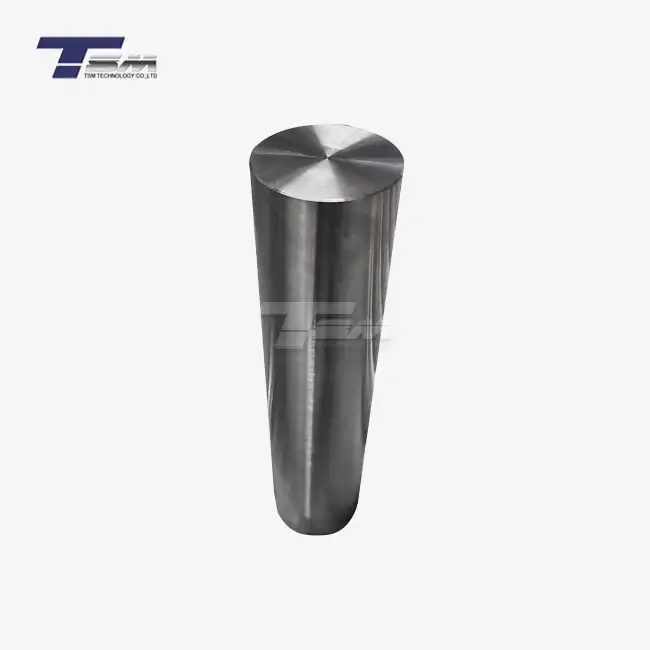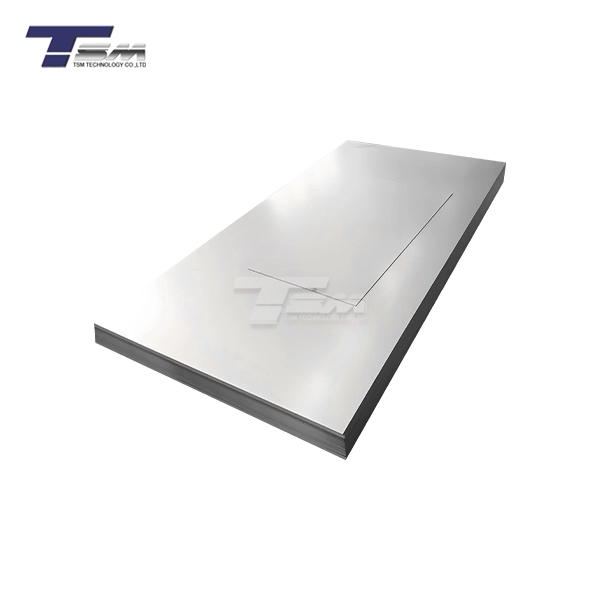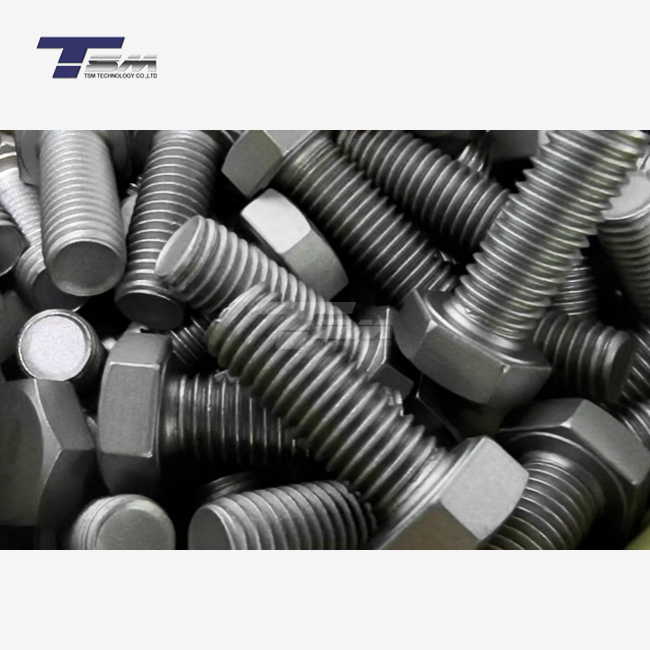The Science Behind Hot Rolling Inconel 718
Microstructural Evolution During Hot Rolling
The hot rolling process induces significant changes in the microstructure of Inconel 718. As the material undergoes deformation at elevated temperatures, dynamic recrystallization occurs, leading to the formation of finer, more uniform grains. This refinement is crucial for improving the alloy's mechanical properties. The high-temperature deformation also promotes the dissolution of unwanted phases and facilitates the precipitation of strengthening particles, such as γ' and γ", which are essential for the exceptional strength of Inconel 718 round bars.

Dislocation Density and Work Hardening
During hot rolling, the dislocation density within the Inconel 718 microstructure increases dramatically. These dislocations interact with each other and with precipitates, creating a complex network that impedes further dislocation movement. This phenomenon, known as work hardening, contributes significantly to the enhanced strength of hot-rolled Inconel 718 bar stock. The interplay between dynamic recovery and work hardening during the rolling process results in a balanced microstructure that combines high strength with adequate ductility.
Texture Development and Anisotropy
Hot rolling imparts a distinct crystallographic texture to Inconel 718 bars. This preferred orientation of grains leads to anisotropic mechanical properties, where the strength along the rolling direction is typically higher than in the transverse direction. Understanding and controlling this texture development is crucial for optimizing the performance of Inconel 718 bar in specific applications. The anisotropy can be advantageous in certain scenarios, such as in components subjected to unidirectional loading, where the enhanced strength along the rolling direction can be exploited.
Process Parameters Influencing Inconel 718 Bar Strength
Temperature Control and Its Impact
The temperature at which hot rolling is performed plays a pivotal role in determining the final strength of Inconel 718 bars. Optimal temperature control ensures that the material remains above its recrystallization temperature throughout the process, facilitating uniform deformation and microstructural evolution. If the temperature is too low, inadequate recrystallization may occur, leading to a heterogeneous microstructure and potentially compromised mechanical properties. Conversely, excessively high temperatures can result in grain growth, which may negatively impact the strength of the Inconel 718 bar stock. Precise temperature management, typically within the range of 980°C to 1150°C, is essential for achieving the desired balance of strength and ductility.
Strain Rate and Deformation Degree
The rate at which strain is applied during hot rolling and the total degree of deformation significantly influence the final properties of Inconel 718 bars. Higher strain rates can lead to more pronounced work hardening and finer grain structures, potentially increasing strength. However, excessively high strain rates may result in localized heating and microstructural inhomogeneities. The total reduction in cross-sectional area during rolling, often expressed as a percentage, directly correlates with the level of grain refinement and strength enhancement. Typical reduction ratios for Inconel 718 round bars range from 50% to 80%, depending on the desired final properties and dimensions.
Post-Rolling Heat Treatment
While hot rolling itself significantly enhances the strength of Inconel 718 bars, subsequent heat treatments can further optimize their properties. Solution annealing followed by aging treatments allows for precise control over the precipitation of strengthening phases. The standard heat treatment for Inconel 718 involves solution annealing at approximately 980°C, followed by a two-step aging process at 720°C and 620°C. This heat treatment sequence maximizes the precipitation of γ' and γ" phases, further boosting the strength of the hot-rolled Inconel 718 bar. The interplay between hot rolling parameters and post-rolling heat treatments offers a wide range of possibilities for tailoring the mechanical properties of Inconel 718 to specific application requirements.
Applications and Benefits of Hot-Rolled Inconel 718 Bars
Aerospace Industry Utilization
The aerospace sector heavily relies on hot-rolled Inconel 718 bars for critical components in aircraft engines and structural parts. The exceptional strength-to-weight ratio and high-temperature stability of these bars make them ideal for turbine disks, shafts, and fasteners in jet engines. Hot-rolled Inconel 718 round bars are often machined into complex geometries for these applications, leveraging their uniform microstructure and consistent properties throughout the cross-section. The enhanced fatigue resistance resulting from the hot rolling process is particularly valuable in aerospace applications, where components are subjected to cyclic loading under extreme conditions.
Energy Sector Applications
In the energy industry, hot-rolled Inconel 718 bar stock finds extensive use in gas turbines, nuclear reactors, and offshore oil and gas equipment. The combination of high strength, excellent corrosion resistance, and thermal stability makes these bars suitable for demanding environments. For instance, in gas turbine applications, Inconel 718 bars are used to manufacture compressor blades and combustion chamber components. The improved creep resistance of hot-rolled Inconel 718, attributed to its refined microstructure, ensures long-term reliability in high-temperature operations critical to power generation systems.
Chemical Processing Equipment
The chemical processing industry benefits significantly from the enhanced properties of hot-rolled Inconel 718 bars. These bars are utilized in the fabrication of pressure vessels, heat exchangers, and valves that operate in corrosive and high-temperature environments. The uniform microstructure achieved through hot rolling ensures consistent performance across large components, reducing the risk of localized failures. Additionally, the improved strength allows for the design of thinner-walled vessels and piping systems, potentially reducing material costs without compromising safety or performance. The resistance to stress corrosion cracking, a characteristic further enhanced by the hot rolling process, makes Inconel 718 bar an excellent choice for handling aggressive chemicals in industrial processes.
Conclusion
Hot rolling is a transformative process that significantly enhances the strength and overall performance of Inconel 718 bars. Through careful control of temperature, strain rate, and deformation degree, manufacturers can produce Inconel 718 round bars and bar stock with optimized microstructures and superior mechanical properties. The resulting products offer exceptional strength, fatigue resistance, and high-temperature stability, making them invaluable in aerospace, energy, and chemical processing applications. As industries continue to push the boundaries of material performance, hot-rolled Inconel 718 bars remain at the forefront of engineering solutions, enabling the development of more efficient, durable, and reliable components for some of the most demanding environments on Earth.
Contact Us
For more information on our high-quality Inconel 718 products and how they can benefit your specific application, please don't hesitate to contact us at info@tsmnialloy.com. TSM TECHNOLOGY is committed to providing superior alloy solutions tailored to your needs.



